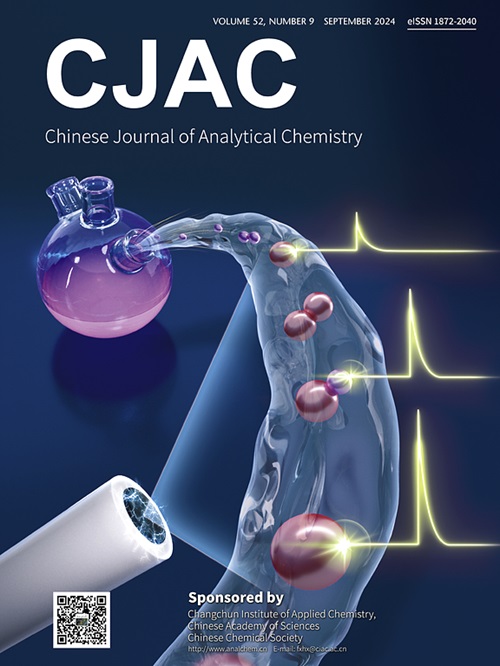辣木籽粉与硫酸铝对地表水浊度和大肠杆菌去除效果的比较分析——以埃塞俄比亚Borana地区焙烤池为例
IF 1.3
4区 化学
Q4 CHEMISTRY, ANALYTICAL
引用次数: 0
摘要
在埃塞俄比亚的Borana农村,获得饮用水的机会有限,而传统的水处理方法成本高昂,导致许多人依赖浑浊的地表水饮用,使他们容易感染水传播疾病。研究了辣木籽粉(MSP)作为天然混凝剂,与常规混凝剂硫酸铝(明矾)相比,对降低池塘水中浊度和大肠杆菌(E. coli)水平的有效性进行了评价。水样用MSP或明矾处理,剂量范围为0 ~ 130 mg/L。该研究评估了初始pH值(1.5至10.5)、沉淀时间(30至180分钟)和初始浊度(55至319 NTU)对两种混凝剂混凝效率的影响。使用便携式浊度计、便携式pH计和膜过滤分别测量处理前后水样中的浊度、pH值和大肠杆菌水平。采用单因素方差分析评估显著性差异(p <;MSP与明矾的凝血效果差异为0.05)。沉淀120分钟后,明矾(70 mg/L)将浊度从216 NTU降至1.8 NTU(去除率99.16%),而MSP (80 mg/L)将浊度降至4.2 NTU(去除率98.05%)。两种混凝剂的浊度水平均低于世界卫生组织(WHO)的5 NTU标准,其中MSP的效果与明矾相似。在大肠杆菌还原方面,70 mg/L明矾对大肠杆菌的还原率为29.78%(从47 CFU/100 mL降至33 CFU/100 mL),而80 mg/L MSP对大肠杆菌的还原率为95.74%(至2 CFU/100 mL)。此外,MSP对MSP的影响不显著(P <;0.05)改变处理后水的pH值,而明矾通常会降低pH值,需要在处理后进行调整。这些结果表明,MSP是一种具有成本效益和可持续的明矾替代品,特别是在像Borana这样获得清洁水有限的农村地区。本文章由计算机程序翻译,如有差异,请以英文原文为准。

Comparative analysis of Moringa stenopetala seed powder and aluminum sulfate for turbidity and E. coli removal from surface water: The case of bake pond, Borana zone, Ethiopia
In rural Borana, Ethiopia, limited access to potable water and the high cost of conventional water treatment methods have led many people to rely on turbid surface water for drinking, exposing them to waterborne diseases. A study was conducted to evaluate the effectiveness of Moringa stenopetala seed powder (MSP) as a natural coagulant for reducing turbidity and Escherichia coli (E. coli) levels in pond water, compared to the conventional coagulant, aluminum sulfate (alum). Water samples were treated with MSP or alum at dosages ranging from 0 to 130 mg/L. The study assessed the effects of initial pH (1.5 to 10.5), settling time (30 to 180 min), and initial turbidity (55 to 319 NTU) on coagulation efficiency for both coagulants. Turbidity, pH, and E. coli levels in the water samples were measured before and after treatment using a portable turbidity meter, portable pH meter, and membrane filtration, respectively. A one-way ANOVA was used to assess significant differences (p < 0.05) between MSP and alum in their coagulation effectiveness. After 120 min of settling, alum (70 mg/L) reduced turbidity from 216 NTU to 1.8 NTU (99.16% removal), while MSP (80 mg/L) reduced turbidity to 4.2 NTU (98.05% removal). Both coagulants achieved turbidity levels below the World Health Organization (WHO) standard of 5 NTU, with MSP showing similar efficacy to alum. In terms of E. coli reduction, alum at 70 mg/L reduced E. coli by 29.78% (from 47 to 33 CFU/100 mL), while MSP at 80 mg/L achieved a 95.74% reduction (to 2 CFU/100 mL). Additionally, MSP did not significantly (P < 0.05) alter the pH of treated water, unlike alum, which typically lowers the pH and requires post-treatment adjustment. These results suggest that MSP is a cost-effective and sustainable alternative to alum, particularly in rural areas like Borana, where access to clean water is limited.
求助全文
通过发布文献求助,成功后即可免费获取论文全文。
去求助
来源期刊
CiteScore
3.60
自引率
25.00%
发文量
17223
审稿时长
35 days
期刊介绍:
Chinese Journal of Analytical Chemistry(CJAC) is an academic journal of analytical chemistry established in 1972 and sponsored by the Chinese Chemical Society and Changchun Institute of Applied Chemistry, Chinese Academy of Sciences. Its objectives are to report the original scientific research achievements and review the recent development of analytical chemistry in all areas. The journal sets up 5 columns including Research Papers, Research Notes, Experimental Technique and Instrument, Review and Progress and Summary Accounts. The journal published monthly in Chinese language. A detailed abstract, keywords and the titles of figures and tables are provided in English, except column of Summary Accounts. Prof. Wang Erkang, an outstanding analytical chemist, academician of Chinese Academy of Sciences & Third World Academy of Sciences, holds the post of the Editor-in-chief.

 求助内容:
求助内容: 应助结果提醒方式:
应助结果提醒方式:


